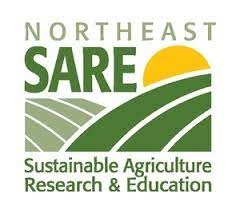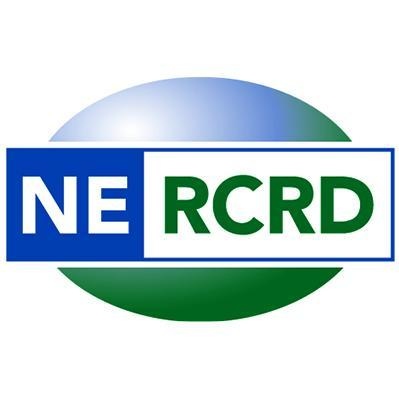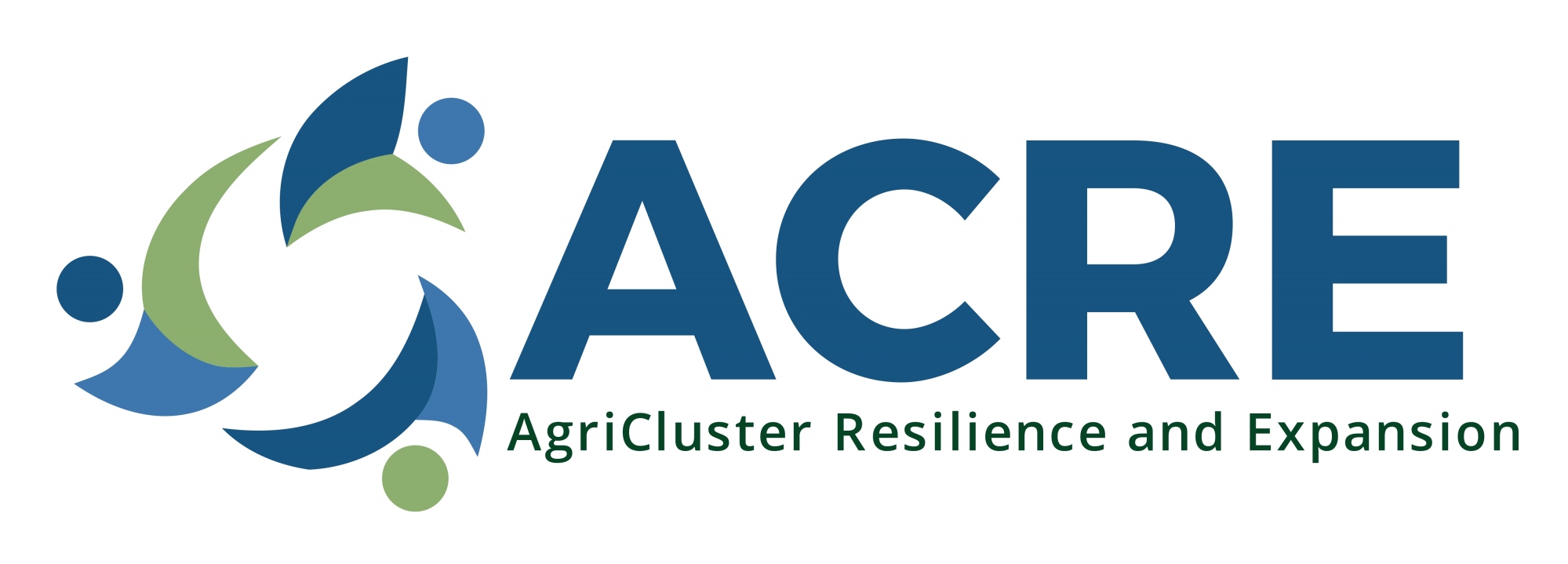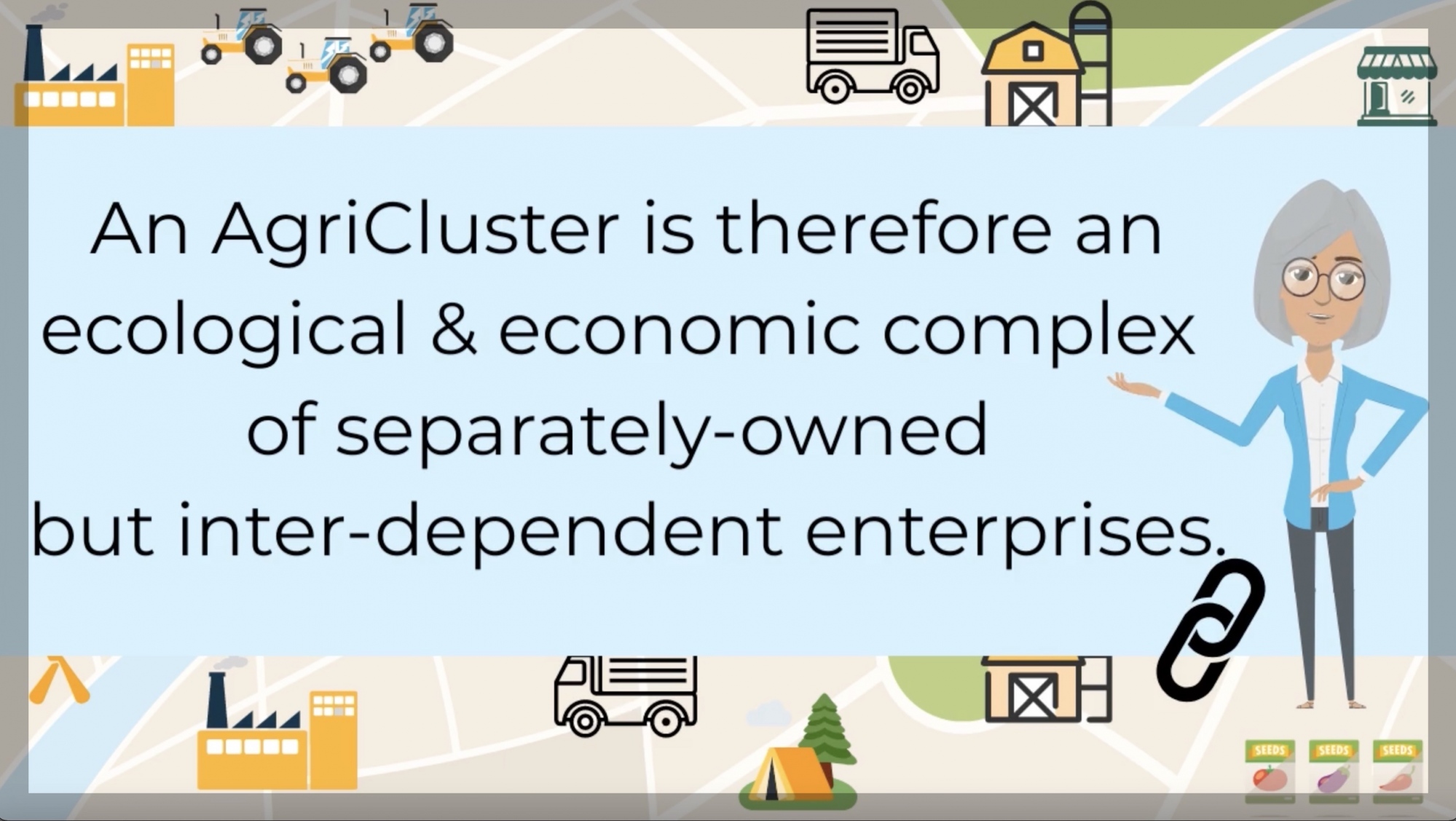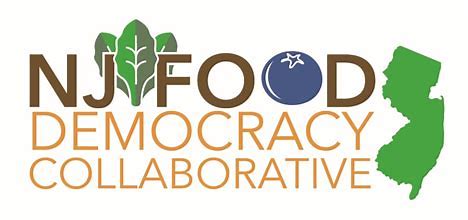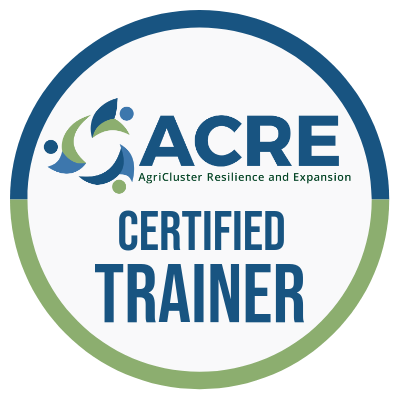ACRE: STRATEGIC PLANNING FOR AGRICLUSTERS
AgriCluster Resilience and Expansion - or ACRE for short - is a professionally-facilitated strategic planning process to help groups of farmers, especially those in value-chains, work together and compete more effectively.
By identifying shared concerns, shared histories, shared values, shared opportunities, and developing a strategic work plan, ACRE helps local and regional groups of farmers and their stakeholder allies - including fisheries, mariculture, agroforestry and timber production, food handlers, food processors and packagers, distributors, and retailers, as well as nonprofit and municipal allies - begin to transform into more resilient "AgriClusters."
The ACRE Facilitator Training Program provides instruction specifically designed for food and agriculture systems professionals to facilitate and guide the ACRE Process with farmers and other community stakeholders.
Food system and agriculture development professionals are invited to take the course.
For those who wish to take their ACRE training further, we encourage you to become a Certified ACRE Trainer by completing a practicum and taking a final exam. Certified ACRE Trainers are eligible to teach other professionals the ACRE Process for working with farmer-led, value-chain projects and other collective action initiatives.
TRAINING PROGRAM COURSE CONTENT
The online, self-paced, asynchronous training program is divided into three parts:
ACRE Part #1 - Preparing to Launch an AgriCluster, includes:
Unit 1. Introduction to the ACRE Process
Unit 2. ACRE Theory, Principles, and Foundations
Unit 3. ACRE Fundamentals of Facilitation
Unit 4. Core Group Formation
Unit 5. Core Group Planning Meeting
Unit 6. Setting the Stage for the ACRE Workshop
ACRE Part #2 - Conducting an ACRE Workshop, includes:
Unit 7. Launching the ACRE Workshop
Unit 8. Shared History Exercise
Unit 9. Shared Values Exercise
Unit 10. Shared Vision Exercise
Unit 11. Opportunity Generating Exercise
Unit 12. Initiative Build-Out Exercise
Unit 13. Prefeasibility Analysis
Unit 14. Drafting the Project Work Plan
Unit 15. Workshop Wrap-Up and Evaluation
ACRE Part #3 - Approving and Implementing an ACRE Project Work Plan, includes:
Unit 16. Post-Workshop Core Group Meeting
Unit 17. The ACRE Project Summit
Unit 18. Project Implementation: An Overview
What is AgriCluster Resilience and Expansion?
Click here to watch the video.
ACRE CASE STUDIES
Have you used ACRE Facilitation to develop a collection action project in your food/ag community? If so, we'd like to hear from you and invite you to share your case study using our template. Contact us.
THE ACRE FACILITATOR TRAINING & CERTIFICATION PROGRAM
ACRE REGISTRATION
The ACRE Facilitation Training is FREE for NAFSN members, and membership is available on a slide scale to ensure accessibility.
Inquire here to register for the ACRE course.
An ACRE Facilitator Course Graduate has completed the online coursework.
An ACRE Certified Trainer has completed the online coursework, passed a final exam, and demonstrated ACRE in practice.
ACCESSIBILITY
The ACRE Program is firmly rooted in equitable access and engagement. Women, Black, Indigenous and People of Color (BIPOC), LGBTQ+ candidates, people with disabilities, as well as those living/working in marginalized and/or isolated areas are strongly encouraged to apply.
ACRE INFORMATION SESSIONS
UPCOMING DATES IN 2026
ACRE AS PROFESSIONAL DEVELOPMENT
ACRE Facilitator Training can be offered as professional development for a group of employees or for a class of college students.
A discount applies to groups of 6+, and we will work with you to create an interactive cohort experience. Contact us here.
TECHNICAL SUPPORT
For technical support with any ACRE coursework, please contact us with your specific questions!
FIND AN ACRE FACILITATOR
Does your group need facilitation for a collection action project? Visit this page to connect with and contract a trained ACRE Facilitator in your area.
COLLABORATORS & FUNDERS
The ACRE Facilitator Training and Certification Program is a Franco-American collaborative of the Thomas A. Lyson Center for Civic Agriculture and Food Systems, VetAgro Sup (in France), Cornell University's Cooperative Enterprise Program, and the North American Food Systems Network (NAFSN).
Funding for ACRE has come from the Northeast Sustainable Agriculture Research and Education Professional Development Program (NESARE), and the Northeast Regional Center for Rural Development (NERCRD).
